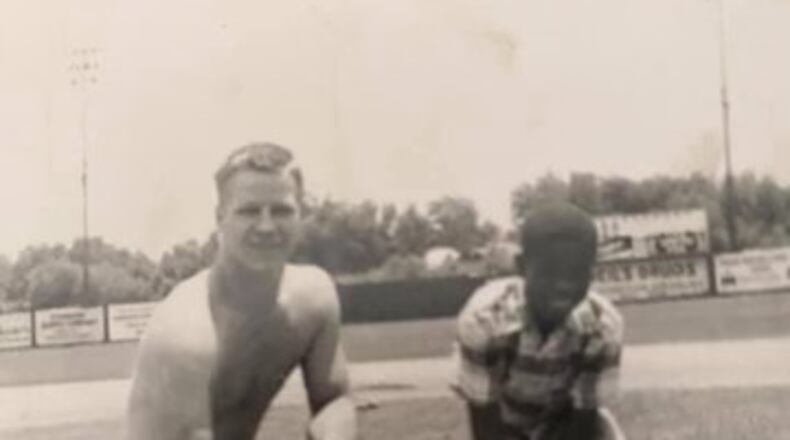“Take me out to the ball game,
Take me out with the crowd;
Buy me some peanuts and Cracker Jack,
I don’t care if I never get back.”
This is nearly a 70-year-old baseball tale, and since one of its central characters, a guy named Ray Nichting from Hamilton, died recently at 89, it’s time to reminisce about the significance of what happened on July 19, 1952.
Hopefully, you’ve heard of Jackie Robinson, who broke the color barrier in the Major Leagues when he played for the Brooklyn Dodgers in 1947, and no doubt you’ve heard of Hamilton’s Joe Nuxhall, who at 15, became the youngest player in the Major Leagues when he pitched for the Cincinnati Reds in 1944.
But this story is about Joe Reliford, who at 12, became the youngest player to appear in a professional baseball game when he pinch-hit for Nichting.
Reliford, one of 10 children and named Joe Louis after the famous boxer, also broke the color barrier in the still-segregated Georgia State League when he was inserted into a game in the Class D circuit in the heart of Southeast Georgia.
Fitzgerald Manager Charlie Ridgeway, after hearing sarcastic chants from the overflow home crowd of “Put the batboy in” with his team losing 13-0 in the eighth inning, inserted Reliford as a pinch-hitter.
After receiving approval from umpire Ed Kubick with the understanding the Pioneers would forfeit the game should they win for using an ineligible player, Reliford pinch hit for Nichting, 20 years old at the time who was hitting .330 in his second season with Fitzgerald.
Nichting recalled years later in the Journal-News what it was like back then: “We’d go to a restaurant, we’d take him in with us, they wouldn’t serve him, they wouldn’t serve us.”
In his one at-bat with the Pioneers, Reliford grounded sharply to third, then played the outfield where he made “a sensational” catch against the fence, according to an article in the Statesboro newspaper.
“That kid picked it off like a champion,” Nichting said years later.
The next day, Kubick, a rookie umpire, was fired and Ridgeway was suspended for five days and fined $50 by league President Bill Estroff.
Estroff, in making the announcement, emphasized that the batboy’s skin color had nothing to do with his decision. He charged the umpire and manager with making “a travesty of the game” by allowing an ineligible player.
Years later Reliford played a few games with the Lucky Stars, an all-black team. He played football at Florida A&M, but a broken collarbone ended his athletic career.
He worked as a jukebox repairman for many years, coached football and basketball at an all-Black high school before Georgia integrated its schools, and served a term as city commissioner.
For his achievement that summer night in Georgia, Reliford was recognized in the Guinness Book of World Records and on the Ripley’s Believe It or Not television program. In 1991, the National Baseball Museum erected a display honoring his accomplishment, and he wrote a book called “From Batboy to the Hall of Fame.”
Meanwhile, Nichting was severely injured in the Korean War when a grenade blew off his right leg below the knee. He returned to Hamilton, married his high school sweetheart, raised a family and became a successful barbershop owner and youth baseball coach.
Neither Nichting nor Reliford ever realized their dreams of playing in the Majors, but for one glorious inning in Georgia, they were teammates.
About the Author


